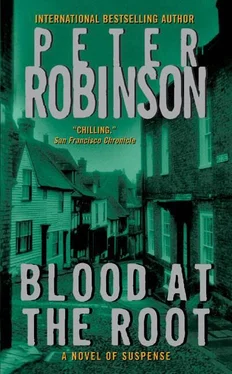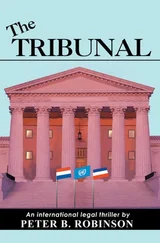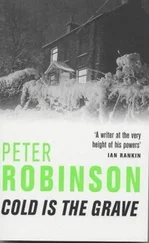First they asked her a few personal questions to get some idea of her overall bearing, confidence and articulateness. She thought she managed to answer clearly, without mumbling or stuttering, except when they asked what her parents thought of her choice of career. She was sure that she flushed, but rather than flounder around trying to explain, she simply paused to collect herself and said, “They didn’t approve, sir.”
Next came the scenarios. And her interviewers added complications, changed circumstances and generally did everything they could to confuse her or get her to change her mind.
“One of the men on your shift is regularly late in the morning,” the ACC began, “putting extra pressure on his mates. What do you do?”
“Have a private word with him, sir, ask him why he’s being late all the time.”
The ACC nodded. “His mother’s dying and she needs expensive care. He can’t afford it on a copper’s salary, so he’s playing in a jazz band until the wee hours to make a bit extra.”
“Then I’d tell him he needs permission to work outside the force and advise him to get help and support from our Welfare Department, sir.”
“He thanks you for your concern, but he keeps on playing with the band and turning up late.”
“Then I’d think some disciplinary action would be in order, sir.”
The ACC raised his eyebrows. “Really? But his mother is dying of cancer. He needs the extra income. Surely this is a reasonable way of earning it? After all, it’s not as if he’s taking bribes or engaging in other criminal acts.”
Susan stuck to her guns. “He’s causing problems for his fellow officers on the shift, sir, and he’s disobeying police regulations. I think disciplinary action is called for if all other avenues have been exhausted.”
And she passed. Now she was due to go up before the chief next week for her official promotion. And that chief, of course, was Chief Constable Riddle.
Still, she reminded herself as she walked into the small office she shared with Sergeant Hatchley, there was nothing Riddle could do now to block her promotion. She had already earned it, and the next step was purely a formality, a bit of pomp and circumstance. Unless, of course, she really screwed up. Then, she supposed, he could do whatever he wanted. He was, after all, the chief constable. And, if nothing else, he could certainly make her life uncomfortable.
The office seemed crowded with Riddle in it. The man’s restless, pent-up energy consumed space and burned up the oxygen like a blazing fire. Susan sat in her chair and Riddle perched on the edge of Hatchley’s desk. He was a tall man, and he seemed to tower over her.
“Who authorized the arrest?” he asked.
“They’re not exactly under arrest, sir,” Susan said. “Just detained for questioning.”
“Very well. Who authorized their detention?”
Susan paused, then said softly, “I think it was DCI Banks, sir.”
“Banks. I knew it.” Riddle got up and started to pace, until he found out there was not enough room to do so, then he sat down again, his pate a little redder. Banks always said you could tell how angry Riddle was by the shade of his bald head, and Susan found herself stifling a giggle as she thought she could see it glow. It was like one of those mood rings that were a fad when she was a child, only Riddle’s mood never softened to a peaceful green or calm, cool blue.
“On what evidence?” Riddle continued.
“There’d been some trouble earlier in the pub, sir, the Jubilee. It involved the Mahmood boy and the victim, Jason Fox. When DCI Banks questioned George Mahmood about it, he refused to cooperate. So did his friends. They asked for a lawyer.”
“And did they get one?”
“No, sir. Well, not until this morning. It was Sunday.”
“Any rough stuff?”
“No, sir.”
Riddle slid his hand across his head. “Well, let’s at least be thankful for small mercies. Have you any idea who Ibrahim Nazur is ?”
“Owner of the Himalaya, sir.”
“More than that. He owns a whole bloody chain of restaurants, all over Yorkshire, and the Himalaya ’s just the latest. He’s also a highly respected member of the Muslim community and one of the prime movers in that new mosque project down Bradford way.”
“Ah,” said Susan.
“‘Ah,’ indeed. Anything from forensics?”
“Nothing conclusive, sir. Not yet.”
“Witnesses?”
“None, sir. Not so far. We’re still looking.”
Riddle stood up. “Right. I want the three of them out of here. Now. Do you understand?”
Susan stood too. “Yes, sir,” she said.
“And tell Banks I’ll be seeing him very soon.”
Susan nodded. “Yes, sir.”
And with that, Jimmy Riddle straightened his uniform and marched downstairs to face his public.
Late that afternoon, Banks walked up to the bar of the Black Bull in Lyndgarth and ordered a double Bell ’s for Frank Hepplethwaite and a half of Theakston’s XB for himself.
According to Susan, who had phoned Banks earlier, Hepplethwaite was Jason Fox’s granddad, and he said he had some information about Jason. He insisted on talking to the “man in charge.” Banks had phoned Frank and, finding out that he didn’t own a car, agreed to meet him in the Black Bull.
Before setting off back for Swainsdale, though, Banks had called at the Leeds address Jason Fox’s parents had given him and found that Jason hadn’t lived there for at least eighteen months. The flat was now occupied by a student called Jackie Kitson, and she had never heard of Jason Fox. There the trail ended.
The barman of the Black Bull was a skinny, hunched, crooked-shouldered fellow in a moth-eaten, ill-fitting pull-over. His greasy black hair and beard obscured most of his face, except the eyes, which stared out in a way reminiscent of photos of Charles Manson. He served the drinks without a word, then took down Banks’s order for one chicken-and-mushroom pie and one Old Peculier casserole. The Black Bull was one of those rare exceptions to the no-food-after-two-o’clock rule that blights most pubs.
Banks took the drinks and joined Frank at a round table by the door. At the bar, one man started telling the barman how much more cozy it was now most of the tourists had gone. He had a whiny, southern accent, and actually lowered his voice when he said “tourists.” The barman, who clearly knew it was the tourist business that kept the place going, grunted “Aye” without looking up from the glass he was drying.
Two other barstool regulars working at a crossword puzzle seemed overjoyed to discover that “episcopal” was an anagram of “Pepsi Cola.” To the left, down the far end where the billiard tables were, two American couples were stuffing coins in the fruit machine, shifting occasionally to the video trivia game opposite.
“You must know Mr. Gristhorpe, young lad?” said Hepplethwaite after thanking Banks for the drink.
Banks nodded. “He’s my boss.”
“Lives here in Lyndgarth, he does. Well, I suppose you know that. Can’t say I know him well, mind you. I’m a fair bit older myself, and he’s been away a lot. Good family, though, the Gristhorpes. Got a good reputation around these parts, anyroad.” He nodded to himself and sipped his Bell ’s.
Frank Hepplethwaite had a thin, lined face, all the lines running vertically, and a fine head of gray hair. His skin was pale and his eyes a dull bottle-green. He looked as if he had once had quite a bit more flesh on his bones but had recently lost weight due to illness.
“Anyway,” he said, “thank you for coming all the way out here. I don’t get around so well these days.” He tapped his chest. “Angina.”
Читать дальше












